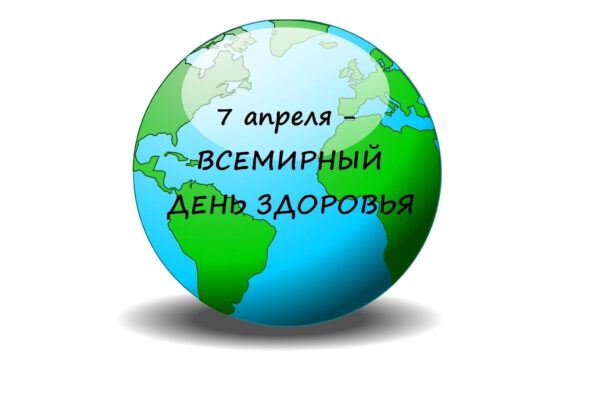
This date was chosen in honor of the day the World Health Organization (WHO) was founded in 1948, when the organization's charter was signed. The annual celebration of Health Day has become a tradition since 1950.
World Health Day annually raises issues that affect all of humanity and directly affect our lives, to increase people's interest in their health and longevity.
At the moment, 194 countries of the world are members of the Organization, including the Republic of Kazakhstan.
Considering this issue from a global point of view, the constantly deteriorating environmental situation, unstable economy, and lack of affordable medicine in some countries are not conducive to a quality and healthy life. To address these issues, the World Health Organization was created, whose responsibilities include developing scientific programs and research, creating standards and monitoring their universal compliance, assessing the health situation and taking measures to improve it.
World Health Day is a day for everyone who cares about their well-being, a healthy body and a strong spirit, and also strives to protect the environment and improve the environmental situation, which directly affects the development of a healthy nation. Every year, the celebration of World Health Day is dedicated to the most significant problems of humanity, and each time it takes place with its own special theme.
The theme of World Health Day 2024 is “My Health, My Right”. This year's theme was chosen to protect the right of everyone everywhere to have access to quality health care, education and information, as well as safe drinking water, clean air, nutritious food, quality housing, decent work and the environment, and freedom from discrimination.
Health is a fundamental right of every person. Health as a human right is recognized in the WHO Constitution (1948), the Universal Declaration of Human Rights (1948) and many international and regional human rights treaties. All WHO member states have ratified at least one international treaty that recognizes the right to the highest attainable standard of physical and mental health.
The right to health is a fundamental human right. Every person should be able to get the medical care they need, anytime, anywhere, without experiencing financial hardship.
WHO calls the world's attention to the urgent action needed to protect the health of people and the planet and strengthen the movement to create societies centered on people's well-being.
WHO calls on governments and the public to spread the word about what they are doing to protect the planet and their health, and build prosperous societies. We must build a world where everyone has access to clean air, water and food, where economies are aligned with health and well-being, where cities are livable, and where people take responsibility for their own health and the health of the planet.
Health, according to WHO definition, is not just the absence of physical defects and diseases, but also the totality of social, physical and mental well-being. The health of an individual and society as a whole depends on many social, natural and biological factors, and is determined 20% by the environment, 20% by heredity, 50% by lifestyle, and only 10% of it depends on the health care system.
A person’s health, first of all, depends on himself. Timely prevention, a healthy lifestyle, a responsible attitude towards oneself and others, the choice of goods and services that do not harm health and the environment - all these are necessary conditions for maintaining health and longevity, and preventing diseases.
Health and a healthy lifestyle are the main value in life, a joyful feeling of one’s existence in this world. Realization of intellectual, moral-spiritual, physical and reproductive potential is possible only in a healthy society.
To stay healthy for as long as possible, WHO recommends:
- To live an active lifestyle. Sedentary work should be compensated by physical activity after a working day of at least 150 minutes of moderate or 75 minutes of intense physical activity per week.
- Eat properly. The diet should contain at least 500 g of vegetables and fruits per day, whole grain cereals, meat - its low-fat varieties, nuts, dried fruits. Salt, sugar, fats should be limited. As a method of culinary processing of food, it is better to choose steaming, stewing, and baking. It is especially important to limit salt intake - no more than 5 grams. in a day.
- Protect yourself from psycho-emotional overload and avoid stressful situations. Engage in activities that bring joy and spiritual pleasure. This will slow down aging processes, maintain activity and good mood.
- Maintain a balance of work and rest, devote a sufficient number of hours to sleep - at least 7-8 - for full recovery of the body.
- Give up bad habits, first of all, smoking (including vaping, hookah) and alcohol abuse.
- Be medically active! Visit your doctor in a timely manner, undergo preventive medical examinations and screenings, and get vaccinated.
Source: Moscow Regional Center for Public Health and Medical Prevention



